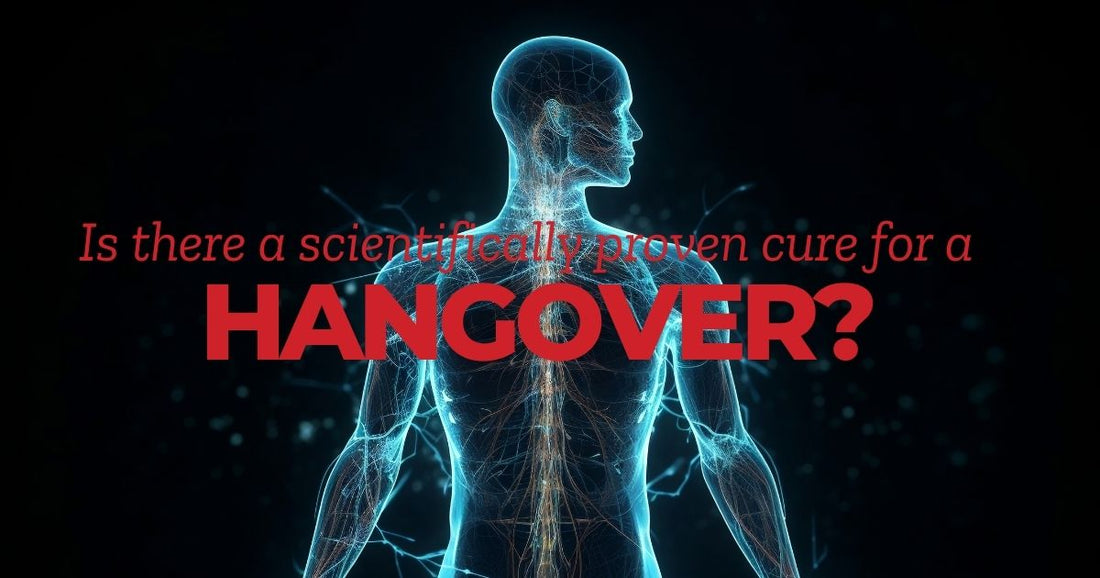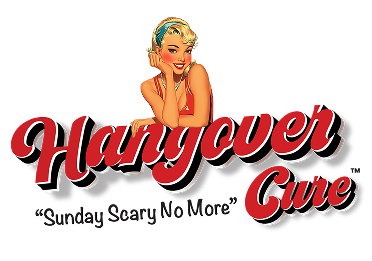
Is There a Scientifically Proven Cure for a Hangover?
Share
Understanding the Science Behind Hangovers
What Happens to Your Body After Drinking?
Alcohol consumption triggers various physiological effects that lead to hangovers. As your body metabolizes alcohol, it creates toxic byproducts that contribute to discomfort the next day. The primary culprit is acetaldehyde, a compound that builds up as your liver processes alcohol. Additionally, alcohol acts as a diuretic, leading to excessive urination and dehydration.
The Role of Dehydration, Inflammation, and Acetaldehyde
- Dehydration: Alcohol suppresses the release of vasopressin, a hormone that helps the body retain water. This results in increased urination, electrolyte imbalances, and dehydration—key contributors to headaches and fatigue.
- Inflammation: Alcohol consumption triggers an immune response, releasing cytokines that cause symptoms like nausea, muscle aches, and brain fog.
- Acetaldehyde Toxicity: This toxic byproduct accumulates when your liver processes alcohol. It’s highly reactive and contributes to nausea, sweating, and rapid heartbeat.
- Nutrient Depletion: Alcohol consumption reduces essential vitamins and minerals, particularly B vitamins, vitamin C, magnesium, and zinc, which are crucial for energy metabolism and detoxification.
Why Some People Get Worse Hangovers Than Others
Several factors influence hangover severity, including:
- Genetics: Some people metabolize alcohol more slowly, leading to prolonged acetaldehyde exposure.
- Hydration Levels: Well-hydrated individuals often experience milder hangovers.
- Type of Alcohol: Dark liquors like whiskey and red wine contain more congeners, which worsen hangovers.
- Food Intake: Eating before drinking slows alcohol absorption and reduces hangover severity.
What Does Science Say About Hangover Cures?
Can Medicine or Supplements Prevent a Hangover?
While there is no medically approved “cure” for a hangover, certain supplements and medications can help mitigate symptoms. Research suggests that some compounds, like N-acetylcysteine (NAC) and vitamin B1, support liver detoxification and reduce oxidative stress.
The Role of Electrolytes, Antioxidants, and Vitamins
- Electrolytes (Sodium, Potassium, Magnesium): Replenishing these minerals helps counteract dehydration and restore proper nerve function.
- Antioxidants (NAC, Vitamin C, Milk Thistle): These support liver detoxification and combat oxidative stress.
- B Vitamins: Alcohol depletes B-complex vitamins, which are essential for energy production and cognitive function.
Does “Sweating It Out” Actually Work?
Contrary to popular belief, exercise and saunas do not significantly speed up alcohol metabolism. While mild physical activity can improve circulation, excessive sweating does not “flush out” toxins but may worsen dehydration.
Debunking Common Hangover Myths
“Hair of the Dog” – Does Drinking More Alcohol Help?
Drinking more alcohol delays the breakdown of acetaldehyde, temporarily masking hangover symptoms but ultimately worsening them once the additional alcohol wears off.
Is Coffee a Good Hangover Cure?
While coffee may provide a temporary energy boost, it exacerbates dehydration and can increase headaches. A better alternative is herbal tea with ginger to soothe nausea and aid digestion.
Does Sleeping It Off Actually Work?
Rest is crucial, but it’s not a standalone solution. Sleep allows your body to repair itself, but rehydration and proper nutrition are also necessary for full recovery.
Science-Backed Hangover Recovery Methods
Rehydrating with Water and Electrolytes
Drinking water before bed and throughout the day helps counteract dehydration. Electrolyte drinks provide essential minerals lost during alcohol consumption.
Read more about Electrolytes
Taking Key Nutrients (B Vitamins, Vitamin C, NAC, Zinc)
- B Vitamins restore depleted energy levels.
- Vitamin C supports detoxification and reduces inflammation.
- NAC (N-acetylcysteine) helps the liver process acetaldehyde efficiently.
- Zinc supports immune function and speeds up alcohol metabolism.
Supporting Liver Detox with Antioxidants
Supplements like milk thistle, turmeric, and glutathione support liver function and reduce oxidative damage.
Getting Proper Rest and Avoiding More Alcohol
Quality sleep enhances recovery, and avoiding alcohol for 24-48 hours allows your body to reset.
How Hangover Cure Supports Scientific Recovery
Designed with Science-Backed Ingredients
Hangover Cure products contain a blend of vitamins, antioxidants, and electrolytes specifically chosen to support rapid recovery.
Helps Replenish Nutrients Lost from Alcohol
Formulated with essential nutrients, Hangover Cure restores what alcohol depletes, ensuring a faster recovery process.
Speeds Up Hydration and Detoxification
Electrolytes and hydration-boosting ingredients help combat dehydration and assist the liver in metabolizing toxins efficiently.

Frequently Asked Questions About Hangover Cures
What is the fastest way to recover from a hangover?
The most effective strategy includes hydrating with electrolytes, taking essential nutrients (B vitamins, NAC, and vitamin C), eating a nutrient-dense meal, and getting sufficient rest.
Can any supplement completely prevent a hangover?
There is no guaranteed prevention, but certain supplements can significantly reduce hangover severity by supporting detoxification and hydration.
How long does it take for a hangover to go away naturally?
Most hangovers resolve within 12-24 hours, depending on factors like hydration, nutrient levels, and metabolism.
Conclusion
While science has yet to discover an instant cure for hangovers, research-backed recovery methods can significantly reduce symptoms. Hydration, key nutrients, and proper rest are essential for a quicker recovery.
Looking for a science-backed hangover remedy? Try Hangover Cure for fast and effective recovery! Visit our shop today to explore our scientifically formulated products.
